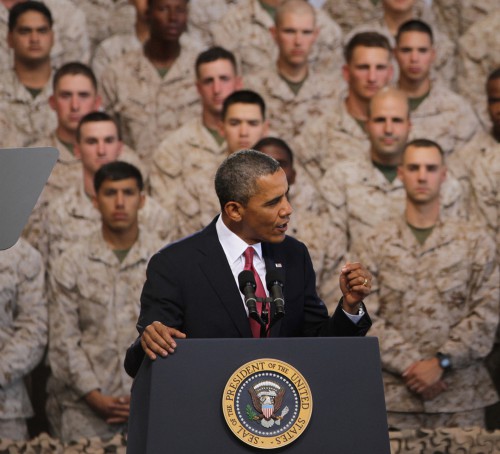When the Iraqi city of Ramadi fell from control of the government to the Islamic State in March, American and Iraqi leaders alike demanded a new strategy, a new effort to beat back the terrorist group. What they fail to see — or more likely, would rather ignore — is how futile a renewed effort by U.S. forces to launch a new attack will be.
After more than three years since the Iraq war officially ended in 2011, the U.S. must end the flow of money and supplies to an Iraqi army who is incapable and unwilling to defend its own country. The last thing I want to watch on the news this summer is a new wave of American troops deploying to a country where we’ve already lost too many soldiers and resources.
The Islamic State retook Ramadi on May 17 as the remaining Iraqi security forces in the city fled their posts. In their haste, they left tanks, artillery weapons, and about 100 Humvee-like vehicles in their wake, according to the Associated Press.
The Islamic State is now sitting on a significant cache of vehicles it can use to keep its hold on the city, or worse, spread its control further across the Anbar Province, of which Ramadi is the capital.
This follows a U.S.-led airstrike campaign against the Islamic State militants in Iraq. On May 24, U.S. Defense Secretary Ashton Carter appeared on CNN’s “State of the Union” to reiterate the airstrikes were effective and the Obama administration opposed sending troops to help guide future strikes from the ground.
More importantly, Carter called the Iraqi security forces out on television, and he did not mince his words.

“[The Iraqi security forces] were not outnumbered. In fact, they vastly outnumbered the opposing force … That says to me and, I think, to most of us, that we have an issue with the will of the Iraqis to fight,” Carter said.
No kidding. You would think, given the past two and a half decades of conflict, the Iraqi forces might try harder to fend off the Islamic State insurgents and maintain order, especially in a province capital. But, to hear American military leaders tell it, it seemed like they barely put up much of a resistance.
“The [Iraqi Security Forces] was not driven out of Ramadi. They drove out of Ramadi,” General Martin Dempsey, chairman of the Joint Chiefs of Staff, said of the situation, according to the Associated Press.
The Iraqi Security Force’s retreat not only left equipment for their enemies to maintain control, but they carried with them their responsibility for the city. Someone else, whether it is better-trained Iraqi forces or someone else, will have to go back to Ramadi to clean up the mess.
At this point, the Obama administration is still rightfully reluctant to send more American troops back to Iraq, beside those who are still there. President Barack Obama is in the unenviable position of weighing whether sending U.S. troops back to Iraq is worth the cost to both the country and his legacy of being the president who oversaw the official end of the Iraq war.
Sending U.S. troops back to Iraq is a slippery slope, one that can easily grow beyond the scope of retaking Ramadi. As American and Iraqi officials alike weigh their options to push the Islamic State back, they must take that option off the table. Americans and their soldiers are not ready to spend another summer watching a bloodbath in Iraq.







